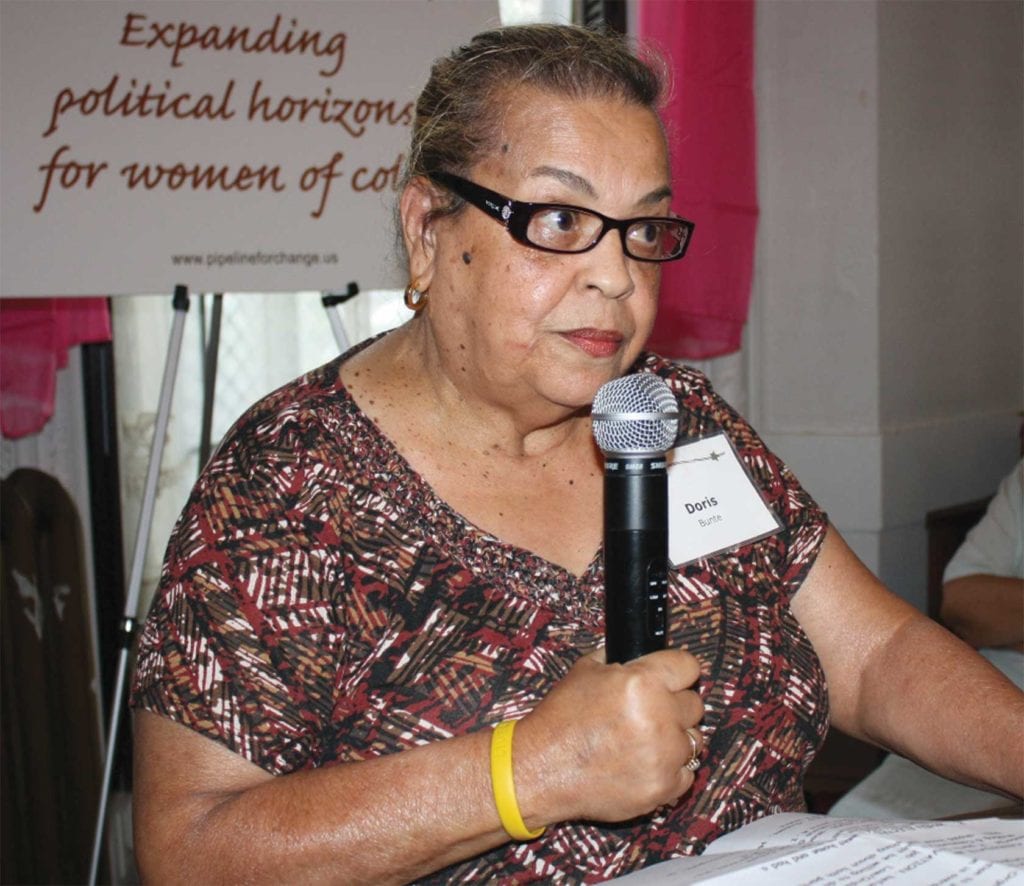
Pioneering political leader and longtime Roxbury resident Doris Bunte died Monday at age 87.
Bunte was elected to the State House in 1972, becoming the first Black woman to serve on that body. She joined the Legislature at a time when Blacks were becoming lawmakers at unprecedented numbers and, in 1973, was among the three founding members of the Massachusetts Legislative Black Caucus.
A resident for decades of the Orchard Park public housing development, Bunte went on to serve as the first African American administrator of the Boston Housing Authority and the first BHA leader who had lived in public housing. She later worked at the Boston University School of Public Health and the Northeastern University Center for Sport in Society.
Bunte was born in New York City in 1933 and moved to Boston at age 20 as a single mother. She became a tenant leader in the Orchard Park development and was appointed to the board of the BHA by then-Mayor Kevin White. Bunte later clashed with White over what she said were patronage appointments the mayor made within the BHA and was ousted from the board. She was reinstated after a ruling from the Supreme Judicial Court found in her favor.
When she entered the Legislature in 1973, it was a time of growing Black political power in Boston. She and other members of the Caucus, which soon swelled to seven members, took on issues including equal employment opportunities, affirmative action, housing discrimination, human services and economic development.
Bunte left the Legislature in 1986, tapped by then-Mayor Raymond Flynn to lead the BHA. During her administration of the BHA, the NAACP Boston Branch brought suit against the agency for its longstanding practice of maintaining separate waiting lists for whites and people of color seeking tenancy in its developments.
While BHA officials maintained that the separate waiting lists were necessary to prevent the racial violence that would come from people of color being placed in predominantly white developments in neighborhoods such as South Boston and Charlestown, by the 1980s waiting lists for Blacks, Latinos and Asians far exceeded those for whites.
Bunte was widely credited with implementing the court-ordered integration of BHA properties. After incidents of racial harassment in predominantly white developments, the BHA implemented a civil rights protection plan to ensure the safety of its residents.
She retired in 2010.
She leaves a daughter, a son, three grandchildren, nine great-grandchildren and six great-great-grandchildren.







